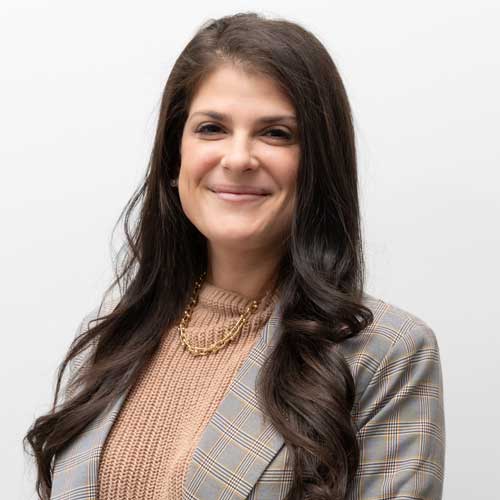Dealing with substance use disorder (SUD) can be challenging on its own, but when coupled with a mental health condition, it can be even more difficult. This combination of disorders is known as a dual diagnosis, and specialized centers in Massachusetts are designed to provide comprehensive care that addresses both conditions simultaneously. Here’s an in-depth look at what makes dual diagnosis centers in Massachusetts unique and how they offer tailored treatment for individuals struggling with co-occurring disorders.
Understanding Dual Diagnosis: A Complex Challenge
Dual diagnosis refers to the occurrence of both a mental health disorder and a substance use disorder in the same person. Conditions such as depression, anxiety, bipolar disorder, PTSD, and schizophrenia often coexist with alcohol or drug abuse, making treatment more complex. These co-occurring disorders can exacerbate each other, creating a vicious cycle that’s difficult to break without proper treatment.
In Massachusetts, dual diagnosis centers are designed to address both conditions simultaneously, rather than treating them separately, which can lead to better long-term recovery outcomes. The holistic and integrated approach ensures that individuals receive the comprehensive care they need to heal both their mind and body.
Key Features of Dual Diagnosis Treatment Centers in Massachusetts
Dual diagnosis centers in Massachusetts offer specialized programs and treatment plans that are distinct from traditional rehab centers. These centers cater specifically to individuals with co-occurring disorders, ensuring that their treatment is multifaceted and individualized.
1. Integrated Treatment for Both Disorders
One of the defining features of dual diagnosis centers is their ability to provide integrated treatment that simultaneously addresses both substance use and mental health disorders. In traditional treatment settings, individuals may be treated for addiction and mental health issues separately, which can lead to fragmented care and hinder recovery.
At dual diagnosis centers, the treatment team works collaboratively to ensure that both conditions are treated at the same time. This integrated approach allows for a more efficient and effective recovery process. Medications, therapy, and support are coordinated to help individuals stabilize both their mental health and their recovery from addiction.
2. Personalized Care Plans
Each patient at a dual diagnosis center in Massachusetts receives a personalized care plan tailored to their specific needs. These plans are developed after a thorough assessment of the individual’s mental health and substance use history. By understanding the unique interaction between the disorders, the care team can create a treatment strategy that focuses on both recovery and overall well-being.
Personalized care plans may include:
- Therapeutic Interventions: Tailored therapy options, including Cognitive Behavioral Therapy (CBT), Dialectical Behavior Therapy (DBT), and trauma-informed therapy.
- Medication Management: Doctors may prescribe medications to help manage symptoms of both mental health and addiction issues, ensuring a balanced approach to healing.
- Supportive Services: These can include group therapy, family counseling, and life skills training, all aimed at helping the individual reintegrate into society while managing their conditions.
3. Holistic and Comprehensive Approach
Dual diagnosis centers emphasize a holistic approach to treatment, focusing on the mind, body, and spirit. These centers understand that addiction and mental health issues are interconnected and require a comprehensive strategy that addresses emotional, psychological, and physical aspects of recovery.
In addition to traditional therapies, many centers incorporate alternative treatments such as:
- Mindfulness and Meditation: These practices can help reduce stress, manage anxiety, and promote emotional balance.
- Nutritional Support: A balanced diet is an important component of recovery, as substance abuse can deplete essential nutrients, and mental health conditions can worsen with poor nutrition.
- Exercise and Outdoor Activities: Physical activity is known to improve mood and reduce symptoms of depression and anxiety, making it a valuable part of dual diagnosis treatment.
4. Experienced, Multidisciplinary Treatment Teams
The treatment of dual diagnosis requires a multidisciplinary approach, with a team of specialists working together to ensure the individual’s needs are met. At Massachusetts dual diagnosis centers, this team may include:
- Psychiatrists and Psychologists: Who can diagnose and manage mental health conditions.
- Addiction Counselors: Who specialize in substance abuse treatment.
- Medical Doctors and Nurses: Who provide physical care and monitor the effects of medications.
- Therapists and Social Workers: Who offer emotional support, therapy, and help with reintegration into society.
By having a well-rounded treatment team, individuals receive well-rounded care that addresses all aspects of their recovery.
Starting the Path to Healing
If you or a loved one is struggling with a co-occurring disorder, seeking treatment at a dual diagnosis center in Massachusetts can be a life-changing decision. The unique, integrated approach to treatment ensures that both mental health and addiction are addressed, offering the best possible foundation for long-term recovery.
Contact a dual diagnosis center in Massachusetts today to learn more about how they can help you or your loved one overcome the challenges of co-occurring disorders and start the journey toward a healthier, sober life.
Sources:
[1] https://nida.nih.gov/research-topics/co-occurring-disorders-health-conditions

Alexis earned both a B.S. in Psychology and a B.S. in Family and Child Sciences from Florida State University and an M.A. in Marriage and Family Therapy from the University of San Diego. She holds licenses in Marriage and Family Therapy in Florida, Connecticut, and Massachusetts and is also a member of the American Association for Marriage and Family Therapy (AAMFT).
Alexis works with families, couples, children, and groups and also has a sub-specialty in addiction and recovery. She utilizes an integrated, systemic approach to counseling; empowering people to define what is not working for them in their lives and to discover the possibilities for making life work. In doing this, clients are guided towards identifying their strengths, accessing their resources, tapping into their potential for success, and taking action toward achieving their desired goals.
Alexis also has extensive experience in the administration of behavioral health organizations. She has developed, built, and supervised several facilities encompassing all levels of care while leading them through state licensing and The Joint Commission accreditation process.



